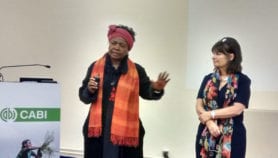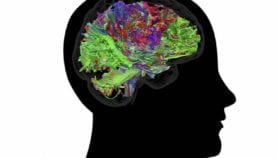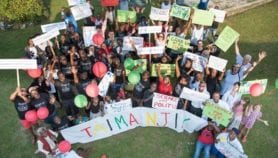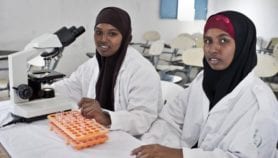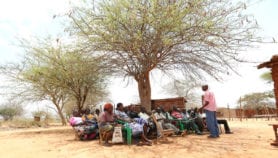By: Katie Mantell
Send to a friend
The details you provide on this page will not be used to send unsolicited email, and will not be sold to a 3rd party. See privacy policy.
A new initiative to enhance collaboration between institutions and centres carrying out research into sustainable development is being launched by the International Institute for Environment and Development (IIED).
The initiative — to include a review of current research partnerships, workshops on the findings and implications of the review, and development of guidance on future collaboration — is being launched in response to a request from Nitin Desai, under secretary general of the United Nations.
It will focus in particular on research needs related to two key challenges being addressed by the World Summit on Sustainable Development (WSSD) in Johannesburg at the end of August: improving global environmental governance, and coordinating poverty alleviation with environmental conservation.
“We are looking at various forms of research partnerships for sustainable development, in order to get the United Nations better hooked into research,” says Steve Bass, director of programmes at IIED. “The idea is to make the case for research [on what needs to be done], rather than just stating that we already know what to do.”
Three meetings will be held to discuss the project. A small, closed meeting in Cambridge in July will be followed by an open meeting to discuss the needs and possibilities for closer collaboration. This will be held during the Science Forum that is being planned as part of the WSSD.
The findings and conclusions from these two meetings will then be discussed at a further session in November, at which a plan of action will be formulated.
“We need to work out what kind of network is needed,” says Bass, emphasising that the main goal is to achieve “better utilisation of what already exists.”
According to Bass, Desai’s request originates in his concern that the major UN agencies “are not really drawing on the right sort of research” and are being “driven by politics not information”.
Although the UN system has many research institutes to which it can go for information on important issues, he says, “some centres of knowledge are slipping through the net.”
Bass adds that “at the national level we are concerned that there are lots of developing countries that are going through development without calling on the right sources of knowledge.”
One of the key aims of the project will be to assess “the drivers of knowledge production for sustainable development”, including current demands on independent sustainable development research institutions, and the financial and patronage climate in which they operate.
The project will also explore ways of sharing lessons on methods and capacities for research, communication and engagement contributing towards achieving sustainable development. It is hoped that this will lead to better links between research institutions, as well as to a brief guidance document (and associated proposals) based on the findings of the review and subsequent discussions.
© SciDev.Net 2002
More on Networks

Script media release
Journalists offered ‘big break’ mentoring opportunity from Radio Nigeria
03/04/19





